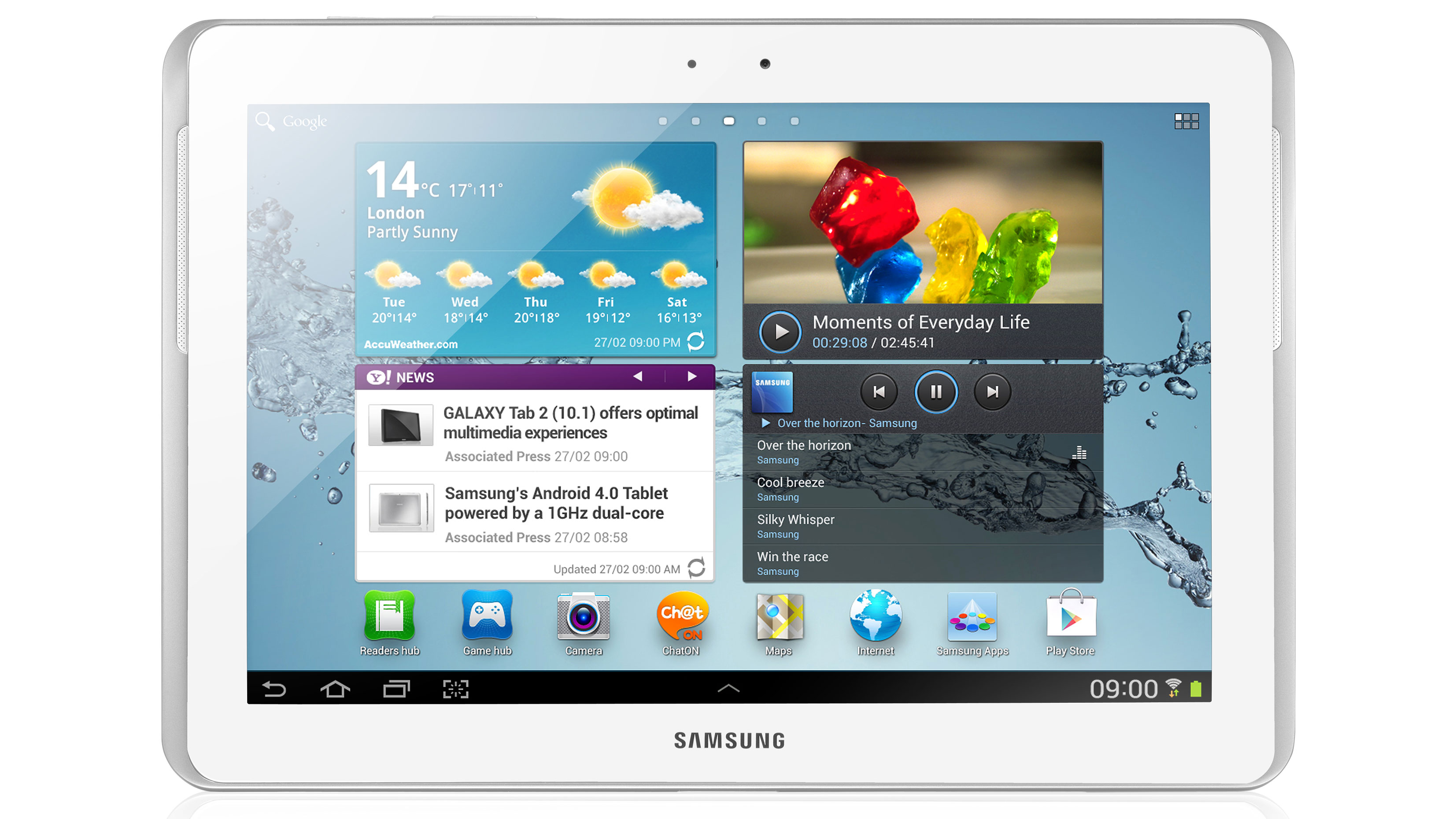Why you can trust TechRadar
As we've mentioned the Samsung Galaxy Tab 2 10.1 pulls no surprises when it comes to weight, sitting comfortably between its rivals at 587g, although this will still test your forearm muscles over an extended period.
Although 10-inch tablets in general aren't recommended as ereaders, one of the key selling points for them is movie playback, and you'll need to keep two firm hands on the Galaxy Tab 2 10.1 if you're going to make it through a feature length film.
Enhancing that movie-watching experience are the front facing speakers plonked, slightly unlovingly by Samsung, either side of the screen.
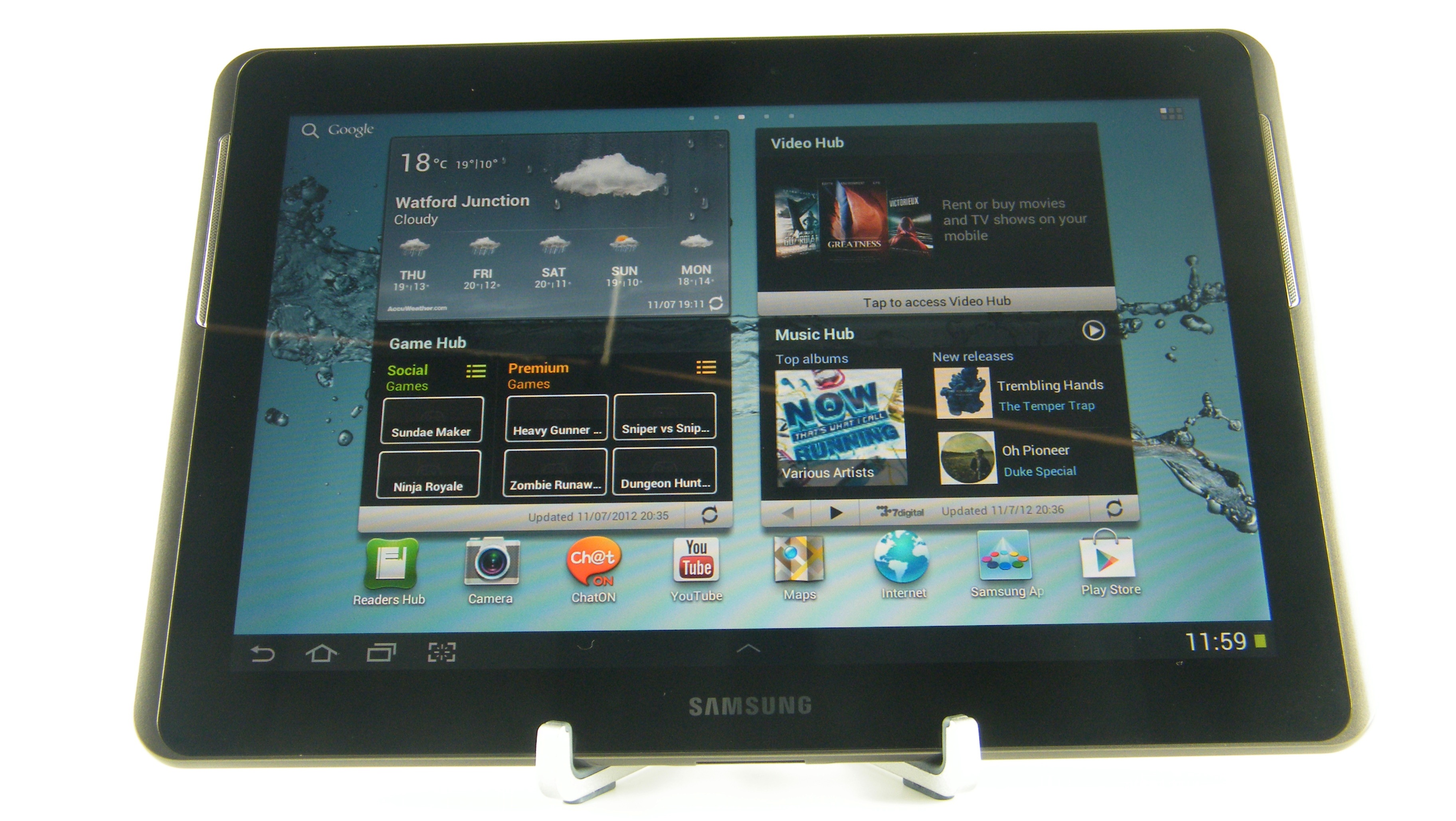
While they lack aesthetic prowess, they are at least functional, delivering sound straight into your face, thus providing a better audio experience than tablets which have speakers located on the back.
The speakers do a respectable job at audio playback, but sound can get tinny and distorted at the highest volumes, and we'd recommend a decent set of headphones for solo viewing over the speakers any day.
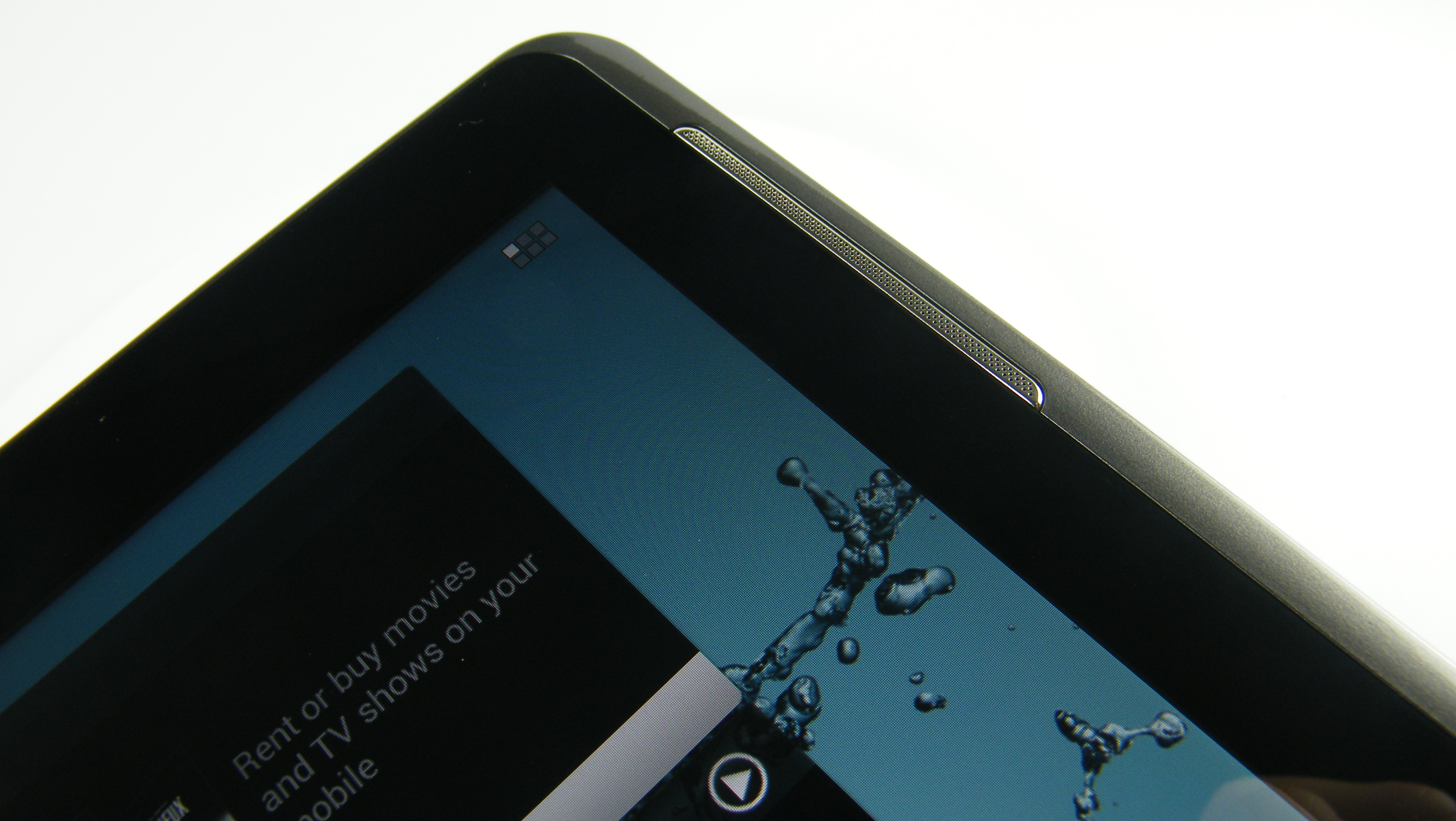
The unassuming design flows to the rest of the tablet, with the dark grey plastic screen surround complimented by a lighter shade of grey on the back – providing what can only be described as a drab looking device, lacking the shiny pizzazz of Apple's iconic offerings.
Although a glut of plastic is present here, the Galaxy Tab 2 10.1 still feels solid, with a sturdy frame clawing back a small amount of premium feel.
Sign up for breaking news, reviews, opinion, top tech deals, and more.
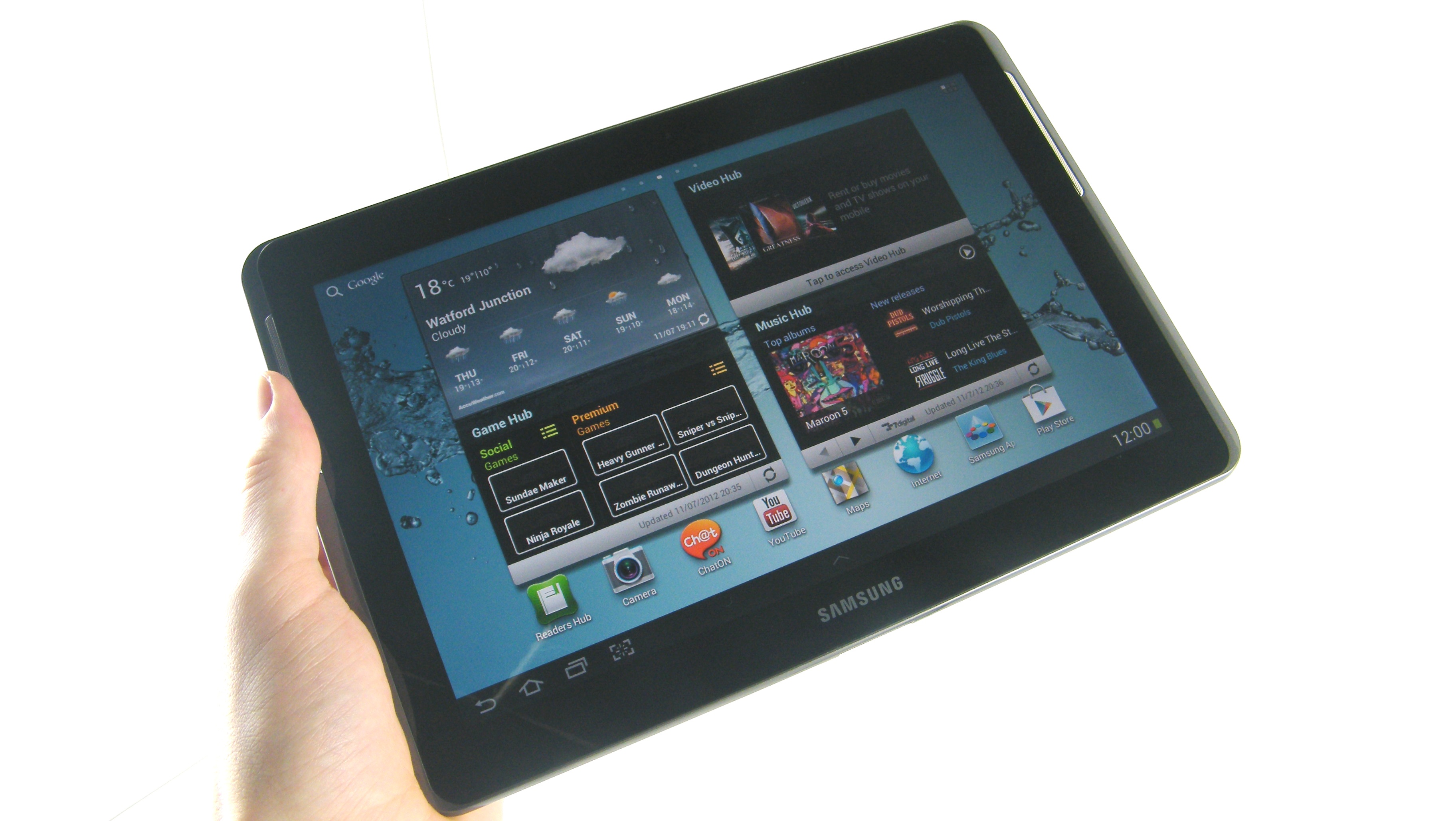
In the middle of the chunky plastic bezel sits the 10.1-inch display, featuring the same 1280x800 resolution of its predecessor, putting it inline with the iPad 2 in terms of clarity and brightness, but miles below the iPad 3, which can be had for not a HUGE amount more cash.
Along the top left of the Galaxy Tab 2 10.1 you'll find the power/lock key, followed by a volume rocker switch, which we found relativity easy to hit most of the time, but when we were lacking in concentration we found ourselves fumbling round for the buttons, like a teenage boy trying to unclasp a brassiere for the first time.
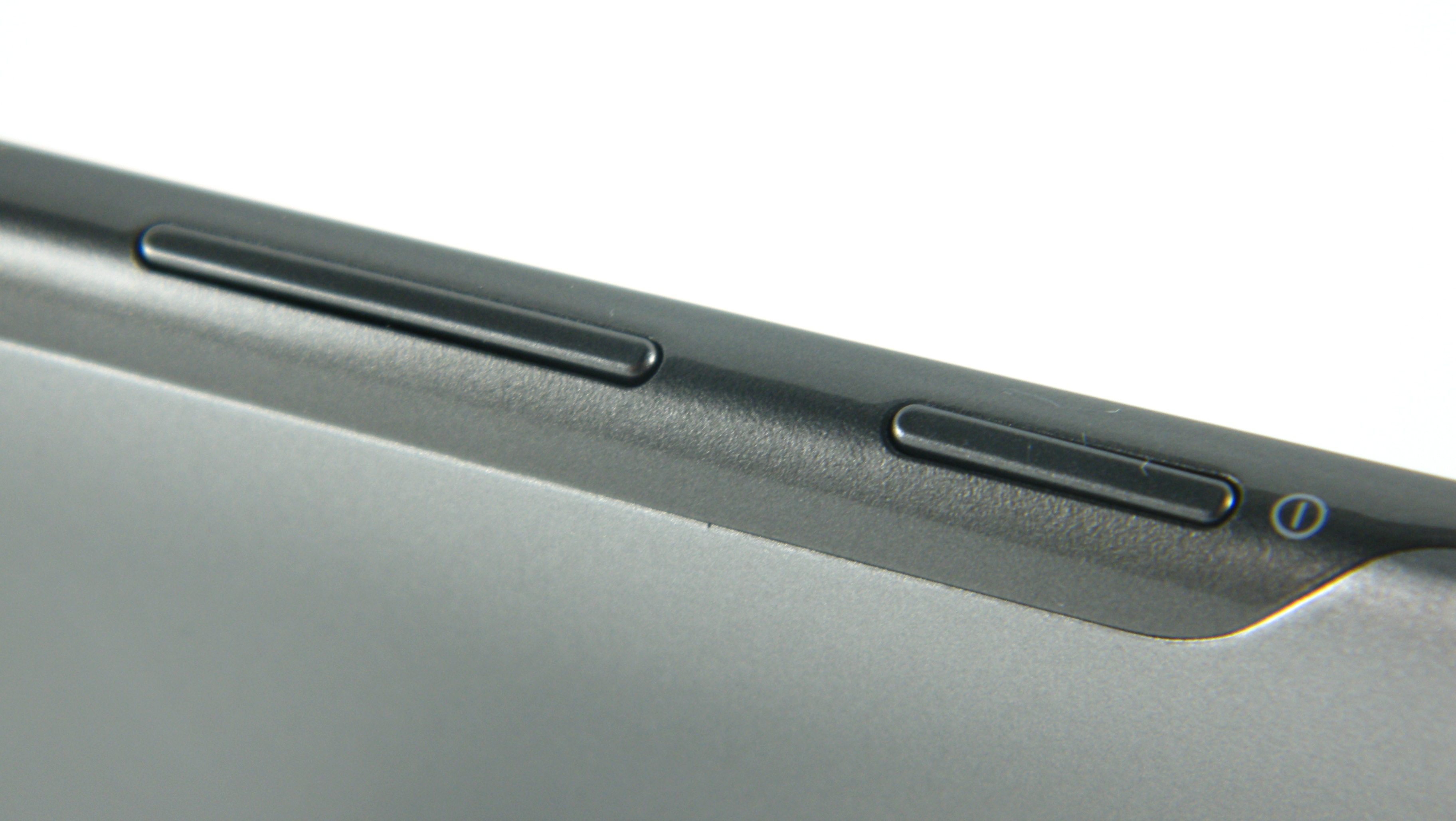
For those who are disappointed to learn that Samsung is only offering the Galaxy Tab 2 10.1 in a 16GB variant, there's a slight reprieve with a microSD slot located next to the buttons atop the device.
Supporting cards up to 64GB in size, this should accommodate the majority of users, and there's a smart cover over the port, which is easy to flick out with a fingernail and pop back in, helping keep the dust out.
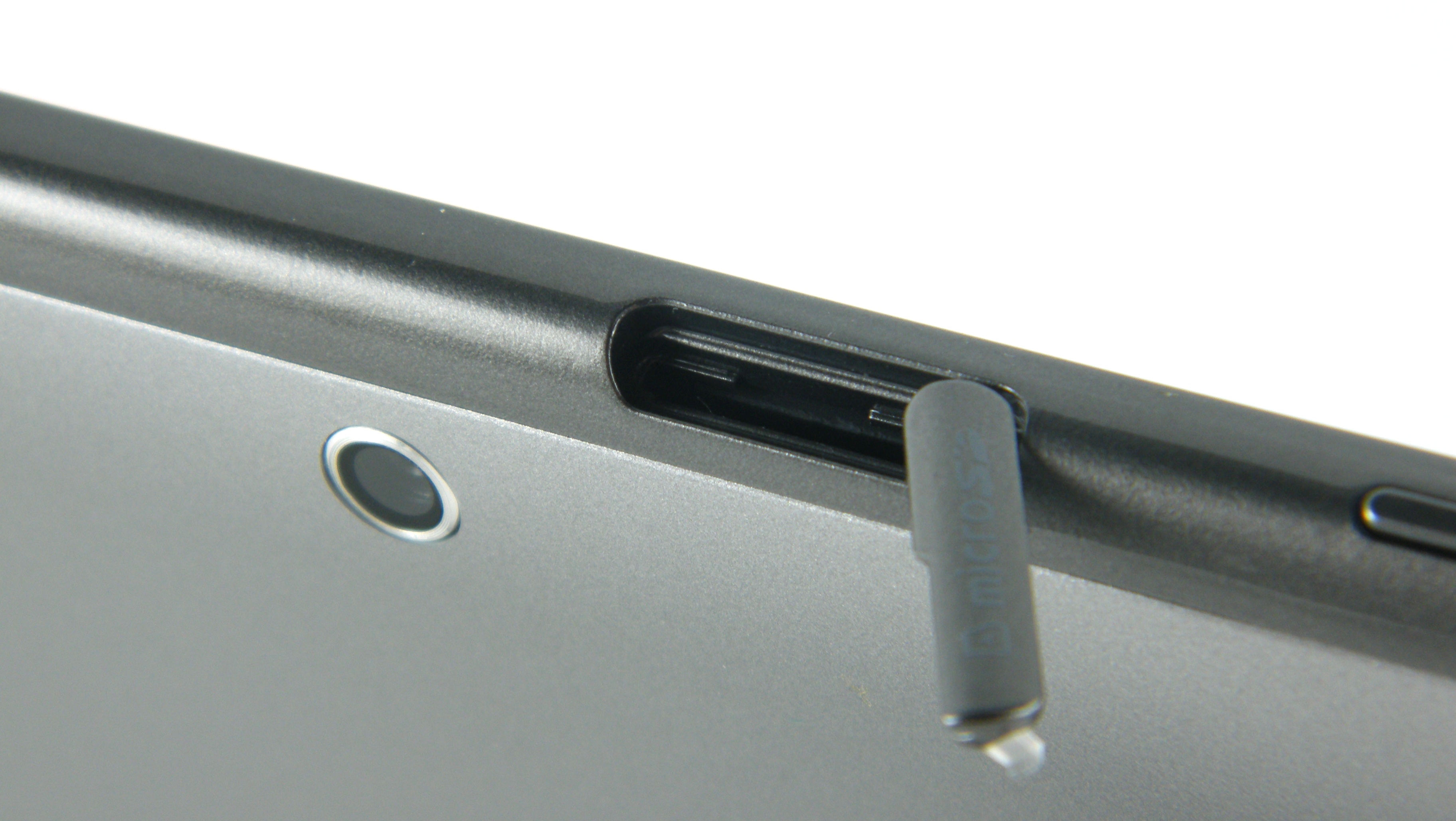
Finally, a 3.5mm headphone jack completes the lineup along the top of the tablet. There's a front facing VGA camera above the screen and on the base is a 30-pin connector dock and a pin hole for the inbuilt microphone.
It's slightly irritating that Samsung has continued with the 30-pin port option, as it means we need to dig out the dedicated cable every time we want to charge or connect the Tab 2 to a computer – we'd much rather have seen a standard USB or microUSB port instead – something which we see on the majority of Android slates these days, although faster charging is always a plus.
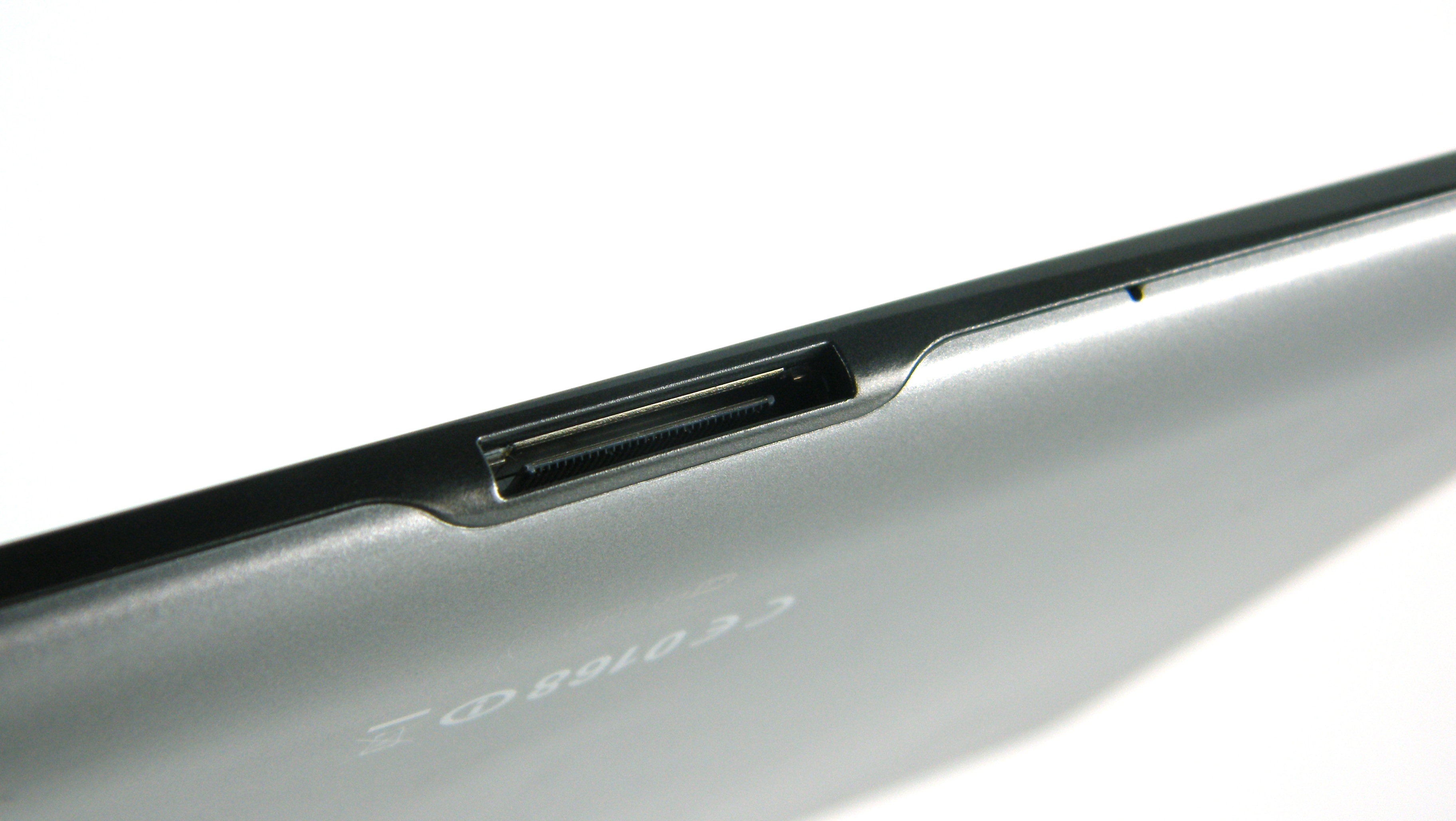
Round the back Samsung has bundled in a 3.15MP camera, certainly nothing to write home about and significantly lower than the 5MP snapper found on the Toshiba AT200 and new iPad, making us think, why bother?
Possibly more disappointing for some is the lack of a SIM-card slot (in the UK at least), meaning that the Galaxy Tab 2 10.1 is confined to Wi-Fi only web access, ruling out data on the go and reducing the appeal of the tablet as a all-round portable device.
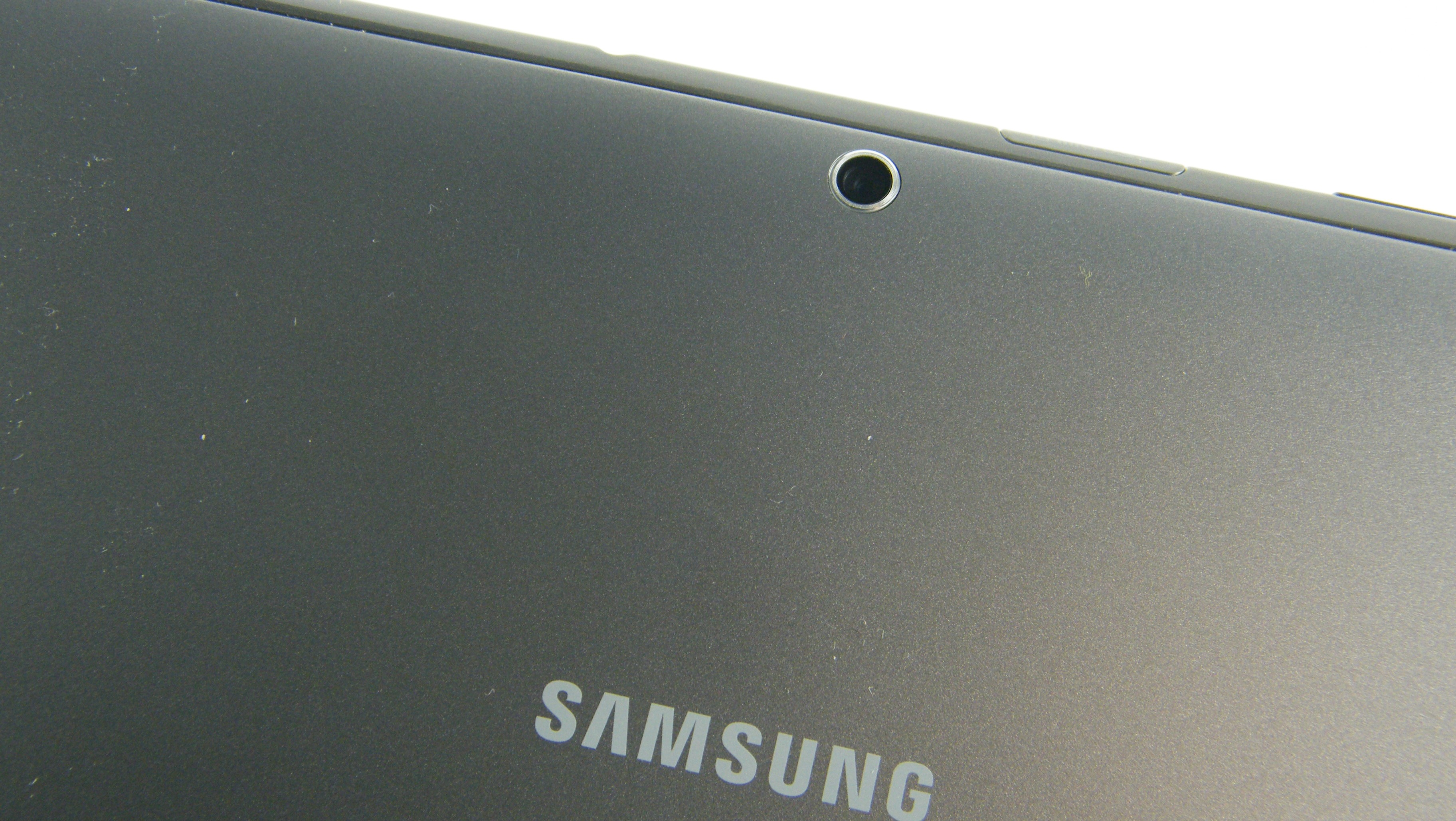
There is a 3G version of the Galaxy Tab 2 10.1 knocking about, but it looks to be available in only a handful of markets, and the UK isn't one of them.
Wi-Fi b/g/n is on board, allowing you to hook up to wireless internet when you are in range, with Bluetooth 3.0 and A-GPS also making an appearance, providing the standard array of connectivity options we've come to expect from devices these days.
For those you who are partial to a bit of steaming action then it's good news for you: the Samsung Galaxy Tab 2 10.1 is DLNA certified, allowing you to fire media to and from the tablet and your other connected devices.

TechRadar's former Global Managing Editor, John has been a technology journalist for more than a decade, and over the years has built up a vast knowledge of the tech industry. He’s interviewed CEOs from some of the world’s biggest tech firms, visited their HQs, and appeared on live TV and radio, including Sky News, BBC News, BBC World News, Al Jazeera, LBC, and BBC Radio 4.
